The first day we started in Mohei, a city that was a station on the old trail. We took a minibus from Ninger to Mohei, checked out some old 20th century architecture in Mohei, then walked the 18 kms south back to Ninger, about 7kms on the old trail, the rest on highway S214.
The next day we walked from our hotel up to the East Pagoda, then walked 4kms north-bound on the Tea Horse Trail and then back to town.
Walking the Tea Horse Trail was great. Lots of uphill walking, amazing views, plus a history lesson.
This courtyard building in Mohei dates from 1946.
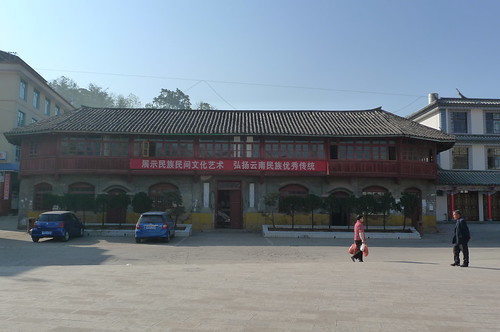
The start of the south-bound Mohei to Ninger section, about Km 2606 on S214, is marked by this stele.
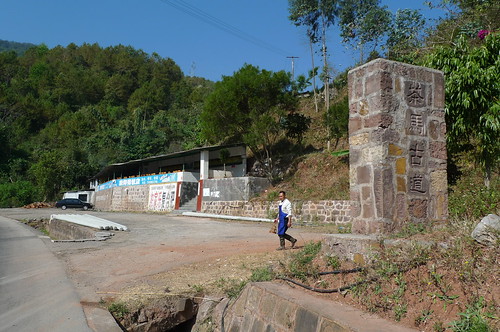
Headed uphill on the trail between Mohei and Ninger.
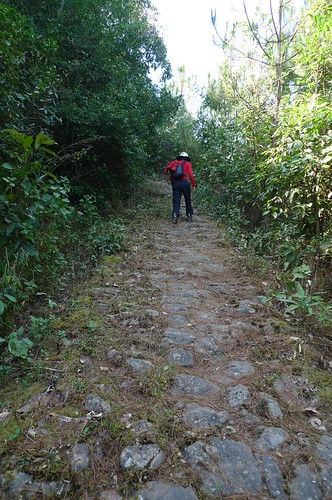
After slogging uphill for 3 hours out of Mohei, we were rewarded with a shady bench and and these views of the tea plantations.
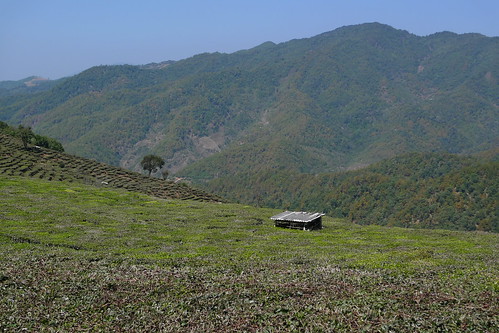
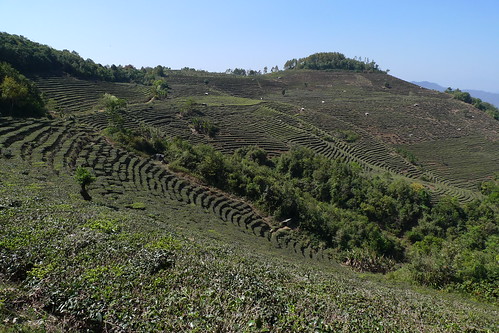
We were surprised to see such wide smooth stones on the Tea Horse Trail.
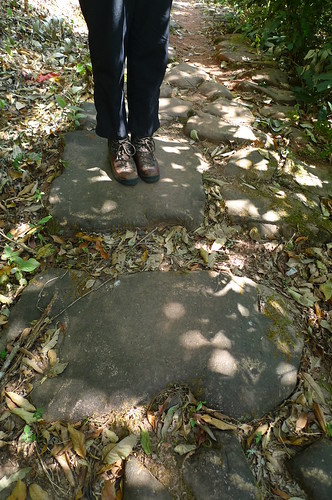
Sun-Ling (in back) doing T'ai Chi with the locals in front of Dong Ta (East Pagoda) before we started our north-bound walk on the Tea Horse Trail.
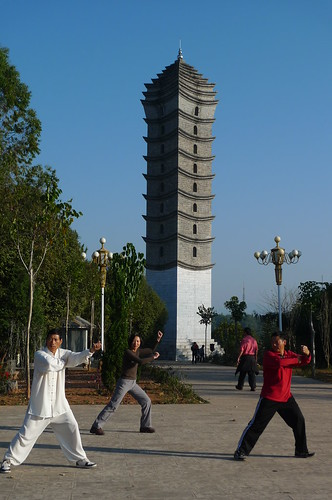
I have read about the Tea Horse Road. I understood that humans , not horses carried the cargo.
ReplyDeleteDad
Anonymous (why not identify yourself?), see http://en.wikipedia.org/wiki/Ancient_tea_route
ReplyDeleteSays not only did horses carry the loads, horses were traded for tea.